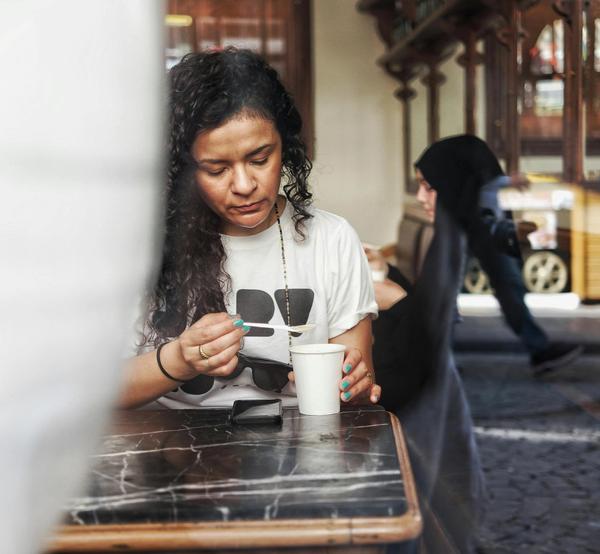
Rising above the cycle: 'It Ends with Us' echoes the real-life battles against domestic violence

Survivors of domestic abuse return to their abusive partners on average seven times, before they leave their violent relationship for good.
It Ends with Us, Hollywood blockbuster film starring Blake Lively, illustrates the myriad of complex circumstances which impact on whether someone might stay, or return to, an abusive intimate relationship.
Based on Colleen Hoover's popular book of the same name, the film depicts Lively’s character, Lily Bloom’s experience of an abusive relationship. Beginning as a swept-off-her-feet romance, the relationship becomes marred with controlling and coercive emotional abuse which highlights the significant challenges many victims face when attempting to escape patterns of family violence in an unhealthy relationship.
Although Lively has been criticised for not sufficiently promoting the serious messages underlying the film, and some readers of the original book encountered darker themes than they bargained for in the widely successful novel, both book and film are undeniably bringing the pervasive issue of family and domestic violence to the centre stage of mainstream pop culture.
With 1 in 4 women experiencing family violence in some form from an intimate partner, the intense agony and internal conflict portrayed by Lively in Lily's struggle to escape her situation likely resonates with many. Confronting the reality of being in a violent and abusive relationship - and reconciling that reality with love and empathy for the perpetrator - against a trauma background of her own, Lily portrays some of the real-life struggles victims can face, when dealing with abusive relationships and attempting to exit them.
As family lawyers, we know that a comprehensive support network can be critical in helping someone to safely exit an abusive relationship. Guidance from professionals with a sophisticated understanding of the intricacies of family violence and the stages of leaving an abusive relationship, who are trauma-informed and non-judgmental in their approach and who can connect you with holistic services to help you to heal and become empowered to begin a new chapter are part of a successful exit plan.
Understanding the scope of domestic violence
Recent statistics reveal a troubling reality:
- 1 in 4 women have experienced physical or sexual violence by a current or former partner, compared to 1 in 16 men.
- 75% of victims of domestic violence reported the perpetrator as male, while 25% reported the perpetrator as female.
- Overall, 1 in 5 women and 1 in 20 men have experienced sexual violence.
- On average, one woman every nine days and one man every month is killed by a current or former partner.
- Intimate partner (physical, sexual and psychological) and sexual violence cause serious short- and long-term physical, mental, sexual and reproductive health problems for women. They also affect their children’s health and well-being.
The criminalisation of coercive control in NSW in 2022 marked a significant legislative milestone, with this nuanced and subtle form of violence now being recognised due to its prevalence and harmful impacts.
Catherine Coles, founding partner at Parker Coles Curtis, said ‘Coercive control and economic abuse can trap victims in cycles of dependency and fear, similar to the struggles depicted in It Ends with Us. Recognising these patterns is the first step towards empowerment,’ says Coles.
In Canberra alone, police reports indicate a rising trend in family violence incidents, reflecting a broader national issue. The need for decisive action is urgent. Stories like those in It Ends with Us are not just fictional narratives; they mirror the painful realities that demand our attention and action.
Helpful resources
‘Empower You’ is a free smartphone app that empowers victims to gain legal protection by leveraging technology to provide accessible support. It offers an array of resources designed to aid individuals involved in potentially dangerous domestic situations, including:
- Reporting incidents
- Access to legal information
- Emergency alerts and safety planning
- Secure evidence collection
Learn more about the benefits and functions of the ‘Empower you’ app here.
As a community, noticing unhealthy relationship patterns is vital. Sometimes, it’s hard to know what to say if we are worried a friend might be in an unhealthy relationship. This article offers some helpful, sensitive tips on what to do if you find yourself in this situation.
At Parker Coles Curtis, we guide clients through some of the most difficult and challenging periods of their lives, empowering them every step of the way to rise up to a new beginning. Whether you, or someone you love is experiencing intimate partner violence, or you have been accused of perpetrating family violence, then talk to us in a confidential, judgement-free space about your options.
Ultimately, we aim to empower and assist anyone experiencing an unhealthy relationship dynamic to break the cycle and regain control of their lives. It ends with us, as a society.
Where you can find support
For those affected by domestic violence, help is available:
- Parker Coles Curtis: Legal advice and support for victims. Book today for a free, non-obligation 15-minute chat with a lawyer.
- Domestic Violence Crisis Service (DVCS): Crisis intervention and practical support.
- Women’s Legal Centre: Legal services for women in distress.
- Lifeline: 24/7 crisis support and suicide prevention.
- 1800 RESPECT: National counselling service for domestic and family violence.


